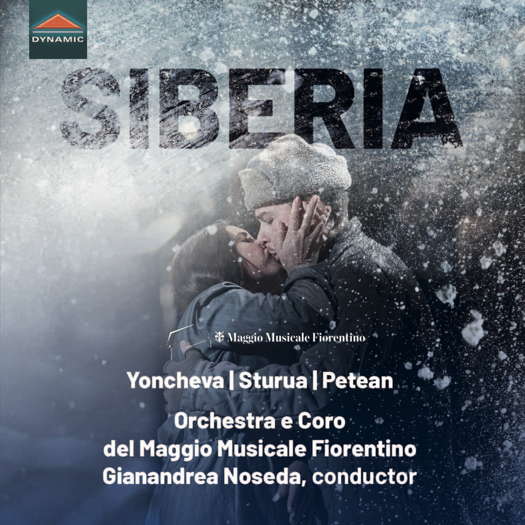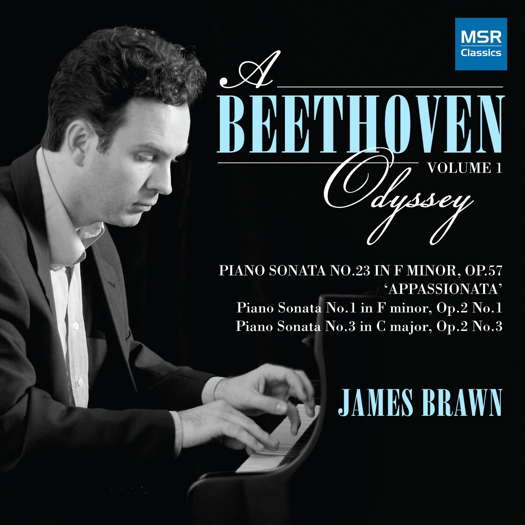 DISCUSSION: What is a work? John Dante Prevedini leads a discussion about The performing artist as co-creator, including contributions from Halida Dinova, Yekaterina Lebedeva, Béla Hartmann, David Arditti and Stephen Francis Vasta.
DISCUSSION: What is a work? John Dante Prevedini leads a discussion about The performing artist as co-creator, including contributions from Halida Dinova, Yekaterina Lebedeva, Béla Hartmann, David Arditti and Stephen Francis Vasta.

Passion, Intensity and Verve
GERALD FENECH listens to Giordano's 'Siberia'
'... full of emotional warmth and heartfelt fidelity.'
Umberto Giordano was born in Foggia on 28 August 1867. He studied under Paolo Serrao at the Naples Conservatoire, and his first opera, Marina, was written for a competition promoted by the famous music publishers Casa Sonzogno for the best one-act opera, remembered today because it marked the beginning of Italian verismo. The winner was Mascagni's Cavalleria Rusticana. Giordano, the youngest contestant, was placed sixth among seventy-three entries with his Marina, a work that generated enough interest for Sonzogno to commission the staging of an opera based on it in the 1891-92 season. The result was Malavita, a gritty verismo opera about a labourer who vows to reform a prostitute if he is cured of his tuberculosis. Performed at the Teatro Argentina in Rome in February 1892, the work caused something of a scandal, but was a success in Vienna, Prague and Berlin.
Giordano tried a more romantic topic with his next opera, Regina Diaz, but this 1894 piece turned out to be another failure, and the piece was withdrawn after just two performances. Moving to Milan, Giordano returned to verismo with his most successful work, Andrea Chenier (1896) based on Victorien Sardou's play. The main role was sung by none other than Enrico Caruso, then still a rising star. Giordano's later operas are much less known, but occasionally revived works, such as Marcella (1907), Madame Sans-Gene (1915), La Cena delle beffe (1924) and Il Re (1929). Fedora (1898) is the only other work that rivalled the success of Chenier, but the work under review also falls into the rarely performed category, although in the last two decades it has enjoyed somewhat of a revival. Giordano died in Milan on 12 November 1948 aged eighty-one.
Siberia is a three-act opera to a libretto by Luigi Illica. It premiered on 19 December 1903 at La Scala and was revised in 1927. The work was not successful despite having an illustrious first-night cast, but its Genoa premiere was highly praised. In May 1905 Siberia made its Paris bow and this performance also came in for many favourable comments. The USA premiere took place on 31 January 1906 in New Orleans and this too was a success. Indeed, the great Gabriel Fauré thought highly of it, particularly the first act, when he attended the Paris performance in 1905. Ironically, it was the composer's favourite amongst his operas, and writer Zachary Woolfe found it difficult to understand why Siberia was left out in the cold for so long.
Listen — Giordano: Preludio (Siberia Act II)
(CDS7928 CD1 track 12, 0:02-0:54) ℗ 2022 Dynamic Srl :
The story's backdrop is Russia in the first half of the nineteenth century. Stephana is the mistress of Prince Alexis, living in an elegant palace in St Petersburg. The woman was once seduced by Gleby, a scoundrel who sold her to the Prince and has been living off a pension granted to him by the same Prince. Stephana loves Vassili, a lieutenant who corresponds with her but assumes she is a simple working girl because they always meet in disguise outside her house. When he has to go to war Vassili goes to meet his love, during which rendezvous he comes to know the truth. Despite this discovery, Vassili still remains smitten with her. The Prince enters and demands an explanation. A duel ensues during which the Prince is killed. At the end of Act I, Vassili is detained and sent to the police.
Listen — Giordano: Sei giovane! Soldato! (Siberia Act I)
(CDS7928 CD1 track 11, 2:30-3:29) ℗ 2022 Dynamic Srl :
In Act II we find ourselves on the frontier between Russia and Siberia in winter. Several prisoners are making their way through the snow on foot to the mines where they are forced to work. Amongst them is Vassili, almost worn out; he is despairing and broken in spirit. A group of women and children are waiting along the road to bid farewell to the prisoners. Stephana arrives in a sleigh. She has left all to join her beloved in whatever fate awaits him. Vassili implores her to return but she refuses, as both are ordered to march into the vastness of Siberia.
Listen — Giordano: È qui con te (Siberia Act II)
(CDS7928 CD1 track 19, 3:03-4:00) ℗ 2022 Dynamic Srl :
As the curtain rises on Act III, we can perceive a hut of convicts in the mines of Trans-Baikal, on the eve of Russian Easter. Due to the upcoming festivities, the prisoners are all owed to organise a feast. Stephana, excited by this development, devises a scheme with an old convict to escape with Vassili, but Gleby has arrived at the prison camp after finally being arrested in one of his many crimes. He recognises Stephana and insults her in front of everybody, including Vassili who tries to defend her but is stopped by the other inmates. The church bells ring and prayers start. During the night Vassili and Stephana execute their plan to escape but Gleby gives the alarm. Immediately, the troops pursue the prisoners and a shot is heard. The lovers are taken back to the camp but Stephana has been seriously wounded. As she bids farewell to Vassili she dies in his arms.
Listen — Giordano: Non piangere! (Siberia Act III)
(CDS7928 CD2 track 18, 2:10-3:07) ℗ 2022 Dynamic Srl :
This is verismo at its best. Indeed, the storyline, with its melodramatic overtones, fits like a glove in the verismo style, and the music is hugely complimentary to this. Also, the score contains some truly exciting and beautiful lyrical passages that compare very favourably with some in the composer's two big hits. Stephana's first act aria, 'Nel suo amore rianimata', is an exquisitely passionate moment that lingers in the mind long after the action comes to an end.
Listen — Giordano: Nel suo amore rianimata (Siberia Act III)
(CDS7928 CD1 track 7, 1:17-1:59) ℗ 2022 Dynamic Srl :
Another outstanding feature is Giordano's ability to weave, or rather enmesh, Russian folk idioms into the heart of the action. Passion, intensity and verve are the hallmarks of this superb performance, majestically conducted by Gianandrea Noseda, whose near-obsession with orchestral colours served him in good stead in producing this rendition that ebbs and flows in a most articulate way. Maybe this is not in the league of Andrea Chenier or Fedora, but it certainly doesn't deserve the neglect it had to endure. I fully agree that we are living times of apprehension and uncertainty, but this should not deter you from enjoying this rare operatic novelty, which, despite its Siberian bleakness, is full of emotional warmth and heartfelt fidelity. Do surprise yourself, it will be worth it.
Copyright © 26 April 2022
Gerald Fenech,
Gzira, Malta

CLASSICAL MUSIC ARTICLES ABOUT SIBERIA



